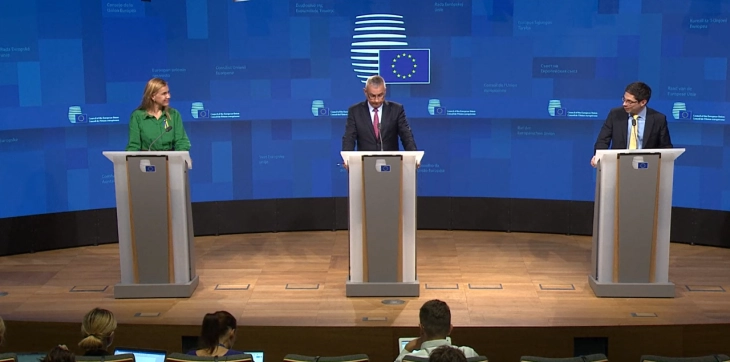EU states OK gas conservation plan prompted by Russian cut-off
- Post By Ivan Kolekevski
- 13:48, 26 July, 2022

Brussels, 26 July 2022 (dpa/MIA) - EU member states officially signed off an emergency gas conservation plan on Tuesday, prompted by fears of a cut-off of Russian gas supplies.
The European Union "will stand tall against any Russian attempt to divide the EU by using energy supplies as a weapon," Jozef Síkela, Czech Industry Minister said in a statement, hailing the agreement.
EU energy ministers agreed on the watered-down plan at a special meeting in Brussels after late-night talks, chaired by the Czech Republic, which brokered a compromise agreement.
The Czech Republic holds the rotating six-month EU presidency and was responsible for passing the emergency plan.
A qualified majority of 15 members, or EU countries representing at least 65% of the bloc's population, was required to pass the proposal.
"Huge majority, only Hungary was against," Sven Giegold, a German environment minister said on Twitter.
The plan provides for a voluntary 15% reduction in member states' gas consumption between August 1 and March 31, as well as a mechanism to trigger a bloc-wide alert in the event of widespread gas shortages to implement binding savings targets.
The agreement sees the stringent terms of the European Commission's first draft considerably watered down, with various opt-out clauses introduced and the threshold for the introduction of binding savings targets also being raised.
The legal text of the plan, obtained by dpa, only allows the European Council, which represents the member states, to enforce binding savings targets, rather than the commission as originally proposed.
Mandatory gas savings can also be reduced in certain circumstances, including when filling gas storage facilities or for the industrial use of gas as a raw material, a Czech statement later confirmed.
Exemptions agreed would also mean that countries including Cyprus, Malta and Ireland would not have to save gas, as their gas systems are not directly connected to those of any other member state.
Glossing over the risk that so many exemptions could reduce the impact of the mandatory targets, Síkela said before the meeting this was necessary as "different states are in different positions."







